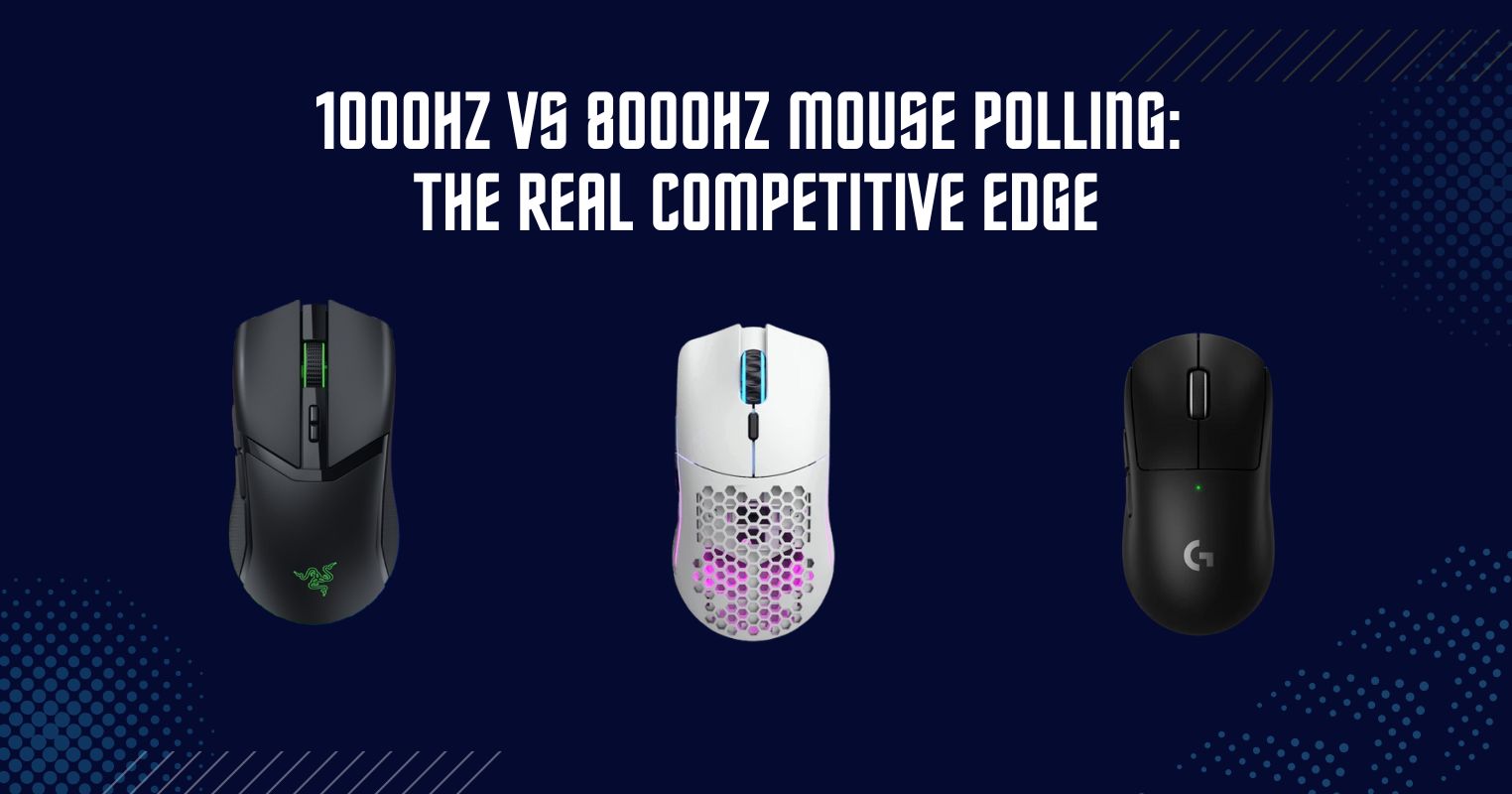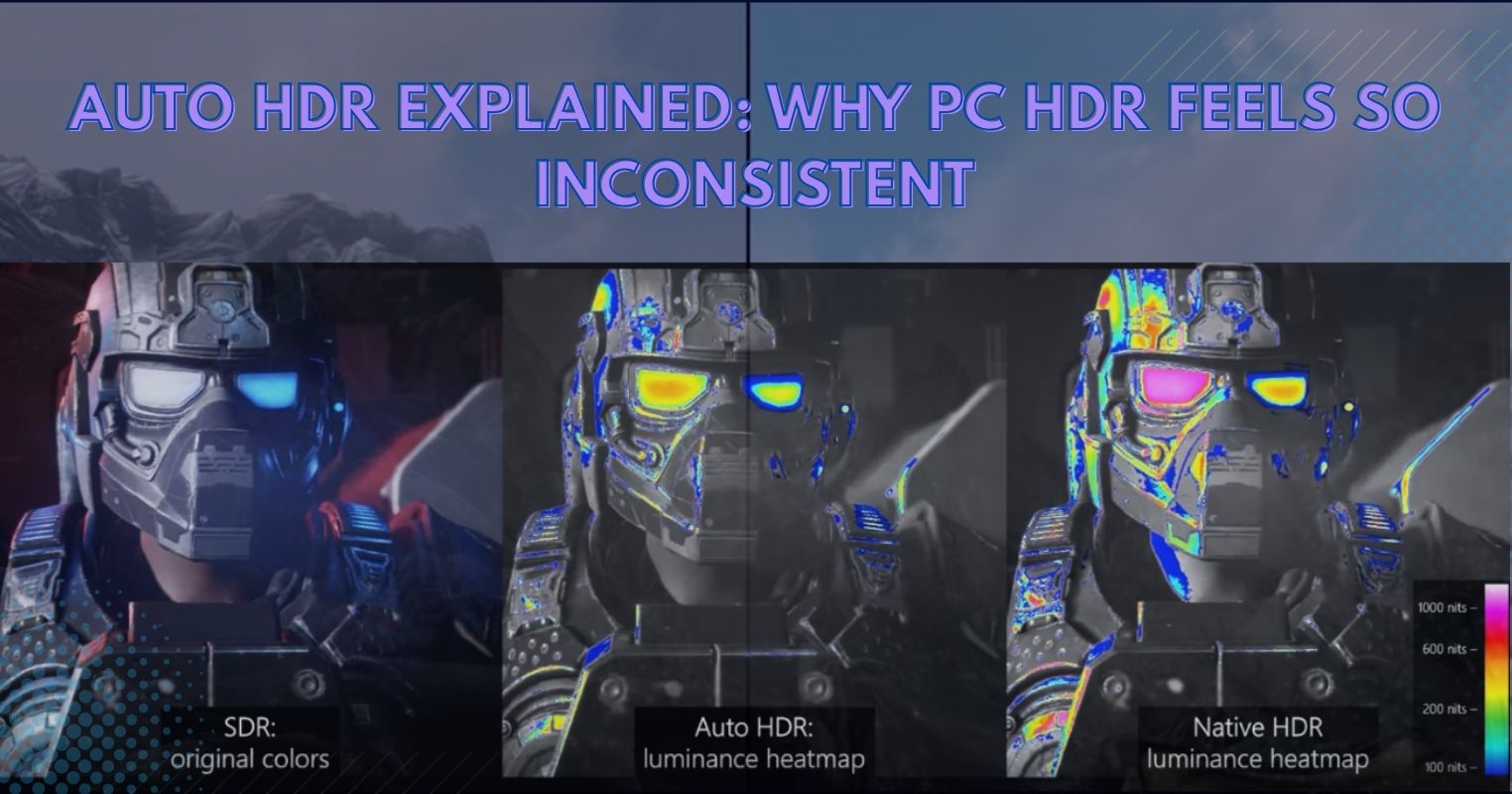- Only four ‘X’ SKUs of the Ryzen 9000 Series CPUs have been launched which focus on productivity workloads and as such, fail to outperform the 7800X3D.
- The Ryzen 7 7800X3D is a much cheaper bargain by up to 50%, or more than $300, and is globally available with no supply chain issues.
- Courtesy of having a singular CCD, Windows 11 is fully optimised to take advantage of the 7800X3D’s 3D V-Cache architecture.
Ahoy there! It’s 2024, so you might still be hopped up on the Zen 5 train and Ryzen 9000 Series ‘Granite Ridge’ bandwagon. However, there are several reasons you might not be feeling too fond of the Ryzen 9000 CPUs.
Maybe it’s because AMD itself has quietly conveyed that these brand-new processors will still be unable to outperform the Ryzen 7000 ‘X3D’ CPUs when it comes to the best CPUs for gaming. We have tested the Ryzen 5 9600X and the 9700X, and both merely outperformed their own predecessors.
You can’t even look towards ‘He Who Must Not Be Named,’ i.e., Intel, as they’re struggling with permanent silicon damage on their high-performance 13th-generation and 14th-generation Processors.
So that leaves you and I with only one sensible choice. The Ryzen 7 7800X3D. Why, you ask? Allow me to answer you in complete detail.
Ryzen 7 7800X3D: Born To Game
You can think of AMD’s 3D V-Cache formula as hopping up the Best Gaming CPU on steroids.
An 8-core/16-thread design based on a 5nm node, 96 MB of L3 cache, Base and Turbo Clock speeds of 4.2 GHz and 5.0 GHz, along with a TDP of 120W means that the Ryzen 7 7800X3D based on its redesigned Zen 4 microarchitecture is one serious contender for the Best Gaming Processor.
How Does 3D V-Cache Work?
As mentioned above, AMD leverages the 2nd Generation of its revolutionary 3D V-Cache technology to ‘stack’ layers of L3 cache on top of one another for a total of 96 MB in the 7800X3D’s case.
But what’s so special about this?
Well, it’s the fact that most games nowadays heavily rely on your L3 cache to optimise and boost your performance output and FPS count.
Such is AMD’s mastery in this department that Intel’s current flagship processor, i.e., the Intel Core i9-14900KS priced at $650 only has 36 MB of L3 cache, unable to fit more into the CPU’s tight enclosure.
Ryzen 7 7800X3D vs Ryzen 9 7950X3D: Beware
It is common sense to assume that the Ryzen 9 7950X3D would be the best gaming processor, courtesy of it being the champion of the ‘X3D’ hierarchy.
Even on paper, the Ryzen 9 7950X3D and even 7900X3D blow the 7800X3D out of the water. 128 MB of L3 cache, Turbo Boost up to 5.7 GHz and a maximum core/thread count of 16/32 means that the Ryzen 9 7950X3D in particular is no joke.
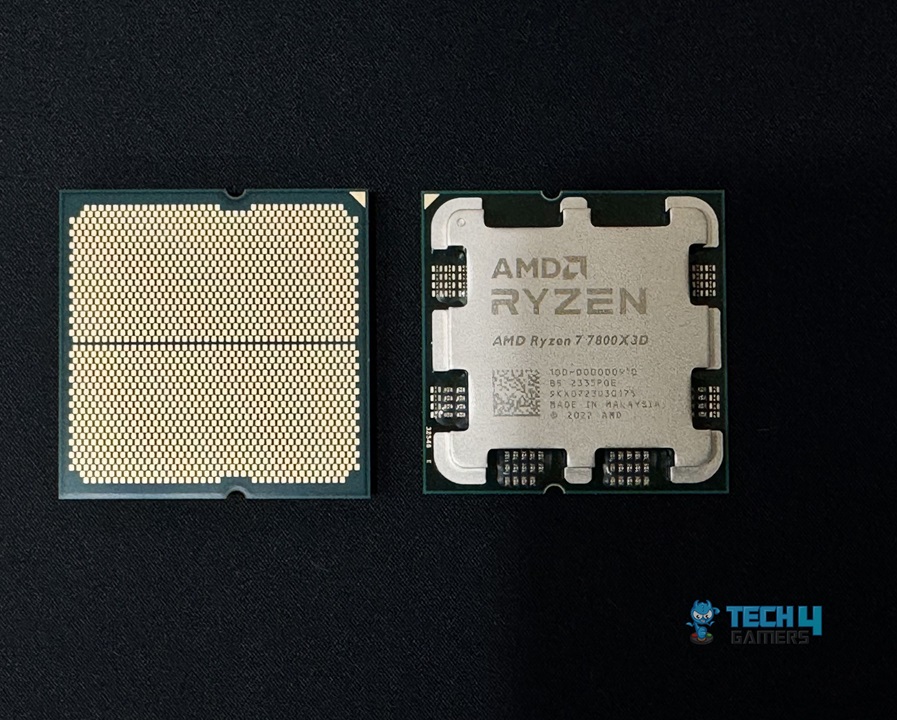
As if that wasn’t enough, AMD has also armed both the Ryzen 9 7950X3D and 7900X3D with a second CCD (Core Chiplet Die) to come up with that ungodly L3 cache figure of 128 MB while still sustaining some freakishly fast Turbo Clock speeds.
Unfortunately, this is where the problem starts. Windows 11 and even Windows 10 aren’t properly configured to appropriately utilize these two CCDs simultaneously.
According to our testing, equating this flaw to real-world performance, the Ryzen 9 7950X3D ends up being almost the same in performance as the Ryzen 7 7800X3D.
Adding insult to injury, the Ryzen 9 7950X3D still costs at least $150 more than the Ryzen 7 7800X3D, even after a $250 discount.
Ryzen 7 7800X3D vs Core i9-14900KS: Loadshedding
All Intel 13th Generation Raptor Lake and 14th Generation Raptor Lake Refresh Processors requiring TDPs of 65W or more have been globally reported to be inflicting self-harm thanks to some faulty microcode encouraging excess voltage delivery, which ultimately damages the CPUs’ silicon in a permanent manner and causes severe system crashes of a random nature.
But let’s suppose this crashing issue never existed. Instead, let’s talk money. The Intel Core i9-14900K and i9-14900KS are currently going for approximately $550 and $650.
In contrast, you can buy a Ryzen 7 7800X3D for less than $310 right now. That’s about $250-350 bucks you can spend on your GPU, RAM, monitor, or gaming peripherals to upgrade them. Do you see what I’m talking about?
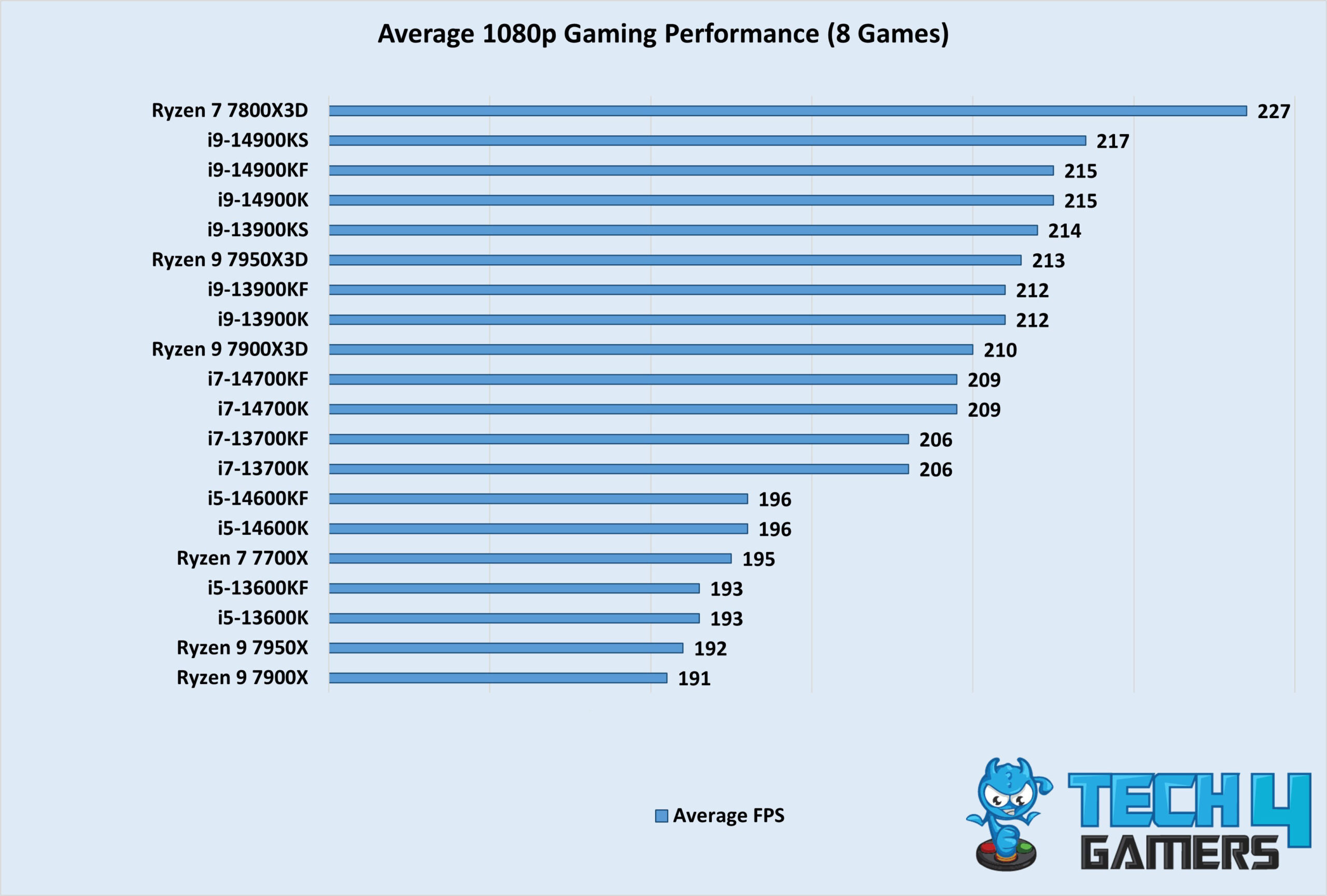
Oh, and as far as performance is concerned, you’ll be very pleased to know that the Ryzen 7 7800X3D actually outshines the Core i9-14900K by a marginal factor of 2%.
Ryzen 7 7800X3D: Best Gaming CPU In 2024
Guys, it’s seriously a no-brainer. It doesn’t matter if it’s the Ryzen 9 7950X3D, the brand new Ryzen 9000 Series Processors, or Intel’s flagship offerings.
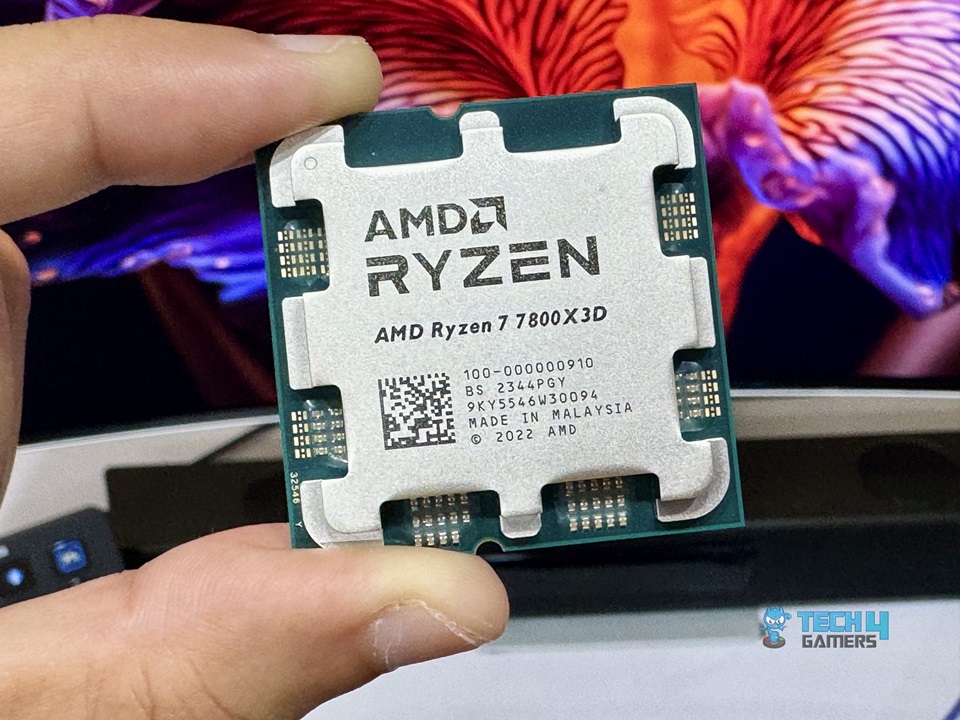
You just can’t beat the Ryzen 7 7800X3D when it comes to collective gaming performance, especially when the conversation tilts towards the price-to-performance calculation.
On that note, I’m happy to announce that the Ryzen 7 7800X3D retains its crown as the Best CPU for Gaming in 2024. Godspeed, AMD.
Thank you! Please share your positive feedback. 🔋
How could we improve this post? Please Help us. 😔
[Wiki Editor]
Ali Rashid Khan is an avid gamer, hardware enthusiast, photographer, and devoted litterateur with a period of experience spanning more than 14 years. Sporting a specialization with regards to the latest tech in flagship phones, gaming laptops, and top-of-the-line PCs, Ali is known for consistently presenting the most detailed objective perspective on all types of gaming products, ranging from the Best Motherboards, CPU Coolers, RAM kits, GPUs, and PSUs amongst numerous other peripherals. When he’s not busy writing, you’ll find Ali meddling with mechanical keyboards, indulging in vehicular racing, or professionally competing worldwide with fellow mind-sport athletes in Scrabble. Currently speaking, Ali’s about to complete his Bachelor’s in Business Administration from Bahria University Karachi Campus.
Get In Touch: alirashid@tech4gamers.com


